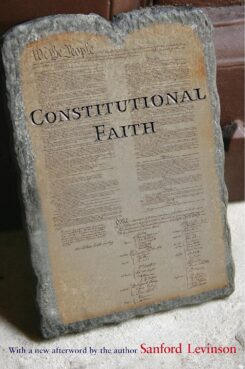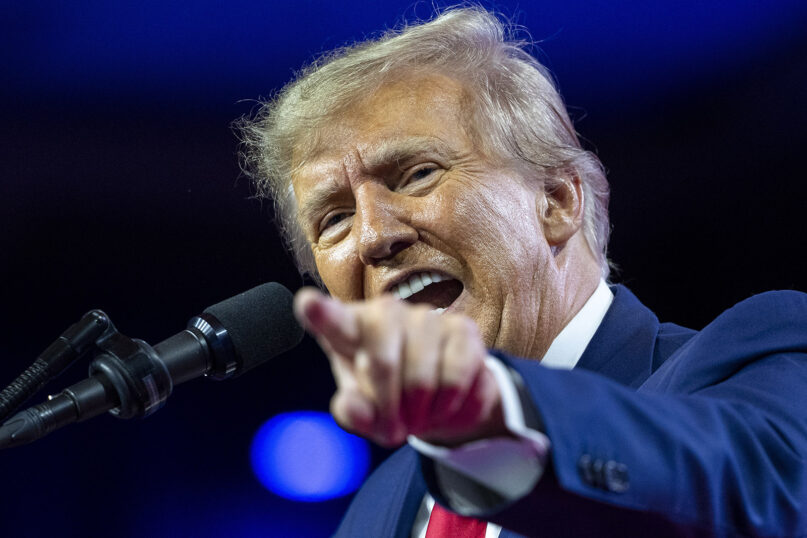(RNS) — In 1988, University of Texas law professor Sanford Levinson published “Constitutional Faith,” a treatise arguing that the U.S. Constitution had become so contested a sacred object that it was undermining the cohesiveness of American civil religion.
Levinson analogized the situation to the wars of religion that tore apart Western Christendom in the wake of the Protestant Reformation.
In interpreting the Constitution, the contest was between a “Protestant” textualism (“sola scriptura” in Reformation parlance, Latin for “based on Scripture alone”) and a “Catholic” tradition of doctrinal evolution. In matters of authority, it was the “Catholic” conviction that the judiciary’s word is final (once Rome speaks, the case is over) versus the “Protestant” belief in everyone’s right to decide what the Constitution means.
Since the middle of the 20th century, liberals have usually been “Catholics” — i.e., hewing to a living Constitution and judicial finality — while conservatives have for the most part been “Protestants,” denigrating constitutional evolution and rejecting the the judiciary’s right to have the last word.
Both sides have venerated the Constitution as a central component of American civil religion but in such profoundly different ways as to divide the country rather than uniting it under a civil religious umbrella.

“Constitutional Faith” by Sanford Levinson. (Courtesy image)
In the 1990s, the conservative embrace of originalism — the idea that the Constitution must be interpreted as it was meant at the time of its adoption — elevated the antagonism into a species of holy war. Most notably, the Supreme Court’s “evolutionary” finding of a constitutional right to abortion in Roe v. Wade was denounced by originalist as well as textualist conservatives as moored in neither the Constitution’s history nor its text.
But this year, a striking shift has occurred, thanks to the legal claim that Donald Trump is disqualified from becoming president again under Section 3 of the 14th Amendment, which was passed after the Civil War to bar from public office insurrectionists who had previously sworn to support the Constitution. In December, the Colorado Supreme Court barred Trump from the state primary on these grounds (as did Maine’s secretary of state), and on Thursday the U.S. Supreme Court will hear oral arguments in the case.
To be sure, there are liberals who oppose Colorado’s action and conservatives who support it — not least the two law professors whose law review article ratcheted up attention to the Section 3 claim last summer. But by and large, the two camps have switched judicial philosophies.
Liberals have shown themselves to be eager textualists and originalists, for example arguing that Trump did indeed engage in what was meant by “insurrection” in the 19th century and showing that the drafters of the 14th Amendment meant Section 3 to apply to the kind of high federal official who by word and deed aided the cause of Southern insurrection before the Civil War broke out.
Meanwhile, conservatives have discovered the importance of present circumstances, contending that it would be an affront to democracy to disqualify Trump and that the severe social disruption that would likely result requires an injection of political considerations into constitutional adjudication.
A cynic might say that philosophical consistency always gives way to political interest, and no doubt the cynic would have a point. But in religion as well as politics, analytic boxes are not as sealed as they sometimes appear. Protestants have been known to rely on extra-scriptural tradition, just as Catholics have been known to ground doctrine in a “sense of the faithful.”
Be this as it may, the Supreme Court’s textualist/originalist supermajority will have to do some fancy footwork to let Trump off the constitutional hook — as nearly every observer expects it will. We can also expect such a decision to further weaken the American civil religion.






